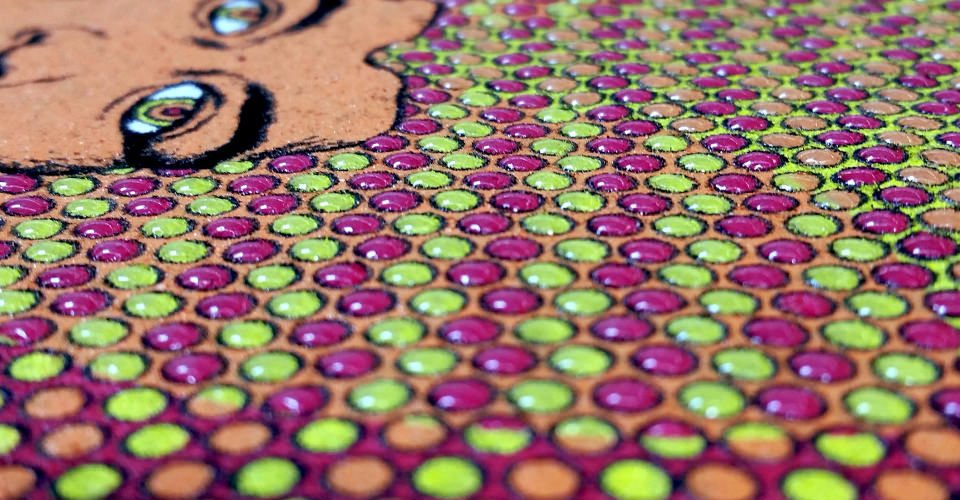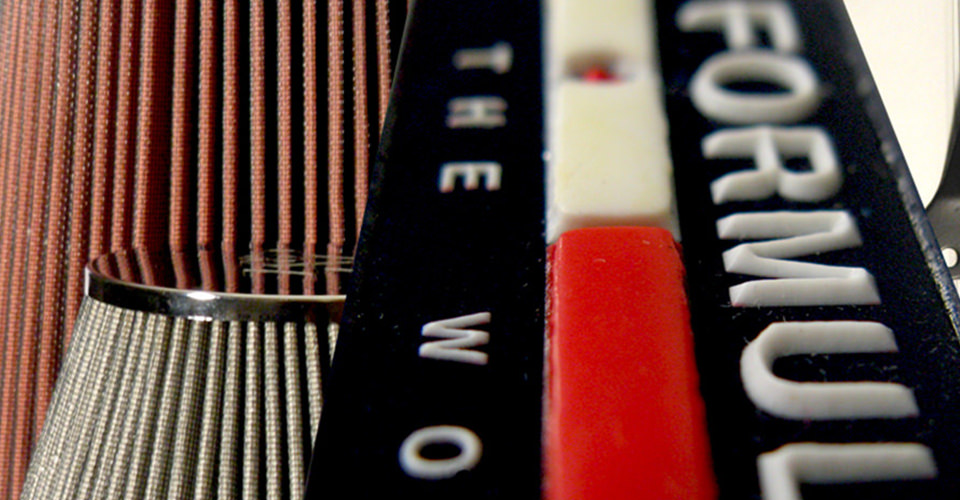Quality Ink Without the Price Tag
March 16, 2018
In an article featured in Impressions Magazine, Kieth Stevens gives us some tips on how to differentiate between quality ink and simply overpriced ink:
 If it sounds too good to be true, it usually is. Don’t let the hype fool you. It’s not necessary to pay an excessive amount of money to get a quality product.
When it comes to quality ink, what’s inside the container should speak for itself; otherwise, don’t buy it. Just because someone says their product is better, or just because the packaging or names look modern and hip, the hype is not necessarily true, nor is the product necessarily better.
We aren’t talking about race cars and rocket ships here. For the most part, we are talking about technologies that have been around for about half a century. Some companies try and mix things up every once in a while to drum up new business with something that is perceived as new when in fact, it’s been around for many years. It’s their way of taking something tested and reliable and sprucing it up so it comes off as new and revolutionary. Now you spent the money and you think you have a revolutionary product, but in fact it’s the same technology being packaged and sold at a higher price.
Bleed blocker grays and blacks? Low-cure inks and or additives? Stretch inks? Reflective ink? All of these inks and additives were introduced 30-plus years ago. The same goes for color-changing inks.
When purchasing ink there are some characteristics you should keep in mind. The following questions will help you sort out the good quality ink from the overpriced ink:
• Does the ink perform as needed?
• Does the color matching system work? Do the colors match?
• Do the inks cure well?
• Do the inks withstand normal washing conditions?
• Do the low-bleed inks resist dye migration?
• Do the inks print well or does it take an extreme amount of pressure to get it to flow through the screen?
• Does the ink print through high mesh counts so you can print more with less ink?
• Does the ink provide coverage (i.e., is it opaque)?
• Does your supplier fully support the product? Do they have thorough knowledge of the product line?
• Does the ink manufacturer offer a complete line of products and additives?
Don’t get me wrong, there are improvements being made and new technology being invented in the ink industry. However, most of the new technology is targeted to very specific evolutionary demands, such as new dyes, fabric construction, greener technology and the like. As such, raw materials for these types of specialty inks are often limited in availability and priced higher. Should you have specific needs where a specialty ink can resolve said issues, they are worth the price!
Kieth Stevens is the Western regional sales manager for International Coatings. He has been screen printing for over 42 years, teaching screen printing for more than 15 years and is a regular contributor to International Coatings’ blogs. Kieth is also the recipient of the prestigious 2014 Golden Image Award Gold Winner, which is given out by SGIA (the Specialty Graphic Imaging Association.
International Coatings manufactures a complete line of Non-Phthalate screen printing inks, including a wide variety of whites, specialty inks, special effects inks,color matching systems, additives and reducers. In addition, International Coatings also manufactures a line of AXEON™ Non-Phthalate, non-PVC printing inks and special effects inks. For more information on our products, please visit our website at www.iccink.com.
If it sounds too good to be true, it usually is. Don’t let the hype fool you. It’s not necessary to pay an excessive amount of money to get a quality product.
When it comes to quality ink, what’s inside the container should speak for itself; otherwise, don’t buy it. Just because someone says their product is better, or just because the packaging or names look modern and hip, the hype is not necessarily true, nor is the product necessarily better.
We aren’t talking about race cars and rocket ships here. For the most part, we are talking about technologies that have been around for about half a century. Some companies try and mix things up every once in a while to drum up new business with something that is perceived as new when in fact, it’s been around for many years. It’s their way of taking something tested and reliable and sprucing it up so it comes off as new and revolutionary. Now you spent the money and you think you have a revolutionary product, but in fact it’s the same technology being packaged and sold at a higher price.
Bleed blocker grays and blacks? Low-cure inks and or additives? Stretch inks? Reflective ink? All of these inks and additives were introduced 30-plus years ago. The same goes for color-changing inks.
When purchasing ink there are some characteristics you should keep in mind. The following questions will help you sort out the good quality ink from the overpriced ink:
• Does the ink perform as needed?
• Does the color matching system work? Do the colors match?
• Do the inks cure well?
• Do the inks withstand normal washing conditions?
• Do the low-bleed inks resist dye migration?
• Do the inks print well or does it take an extreme amount of pressure to get it to flow through the screen?
• Does the ink print through high mesh counts so you can print more with less ink?
• Does the ink provide coverage (i.e., is it opaque)?
• Does your supplier fully support the product? Do they have thorough knowledge of the product line?
• Does the ink manufacturer offer a complete line of products and additives?
Don’t get me wrong, there are improvements being made and new technology being invented in the ink industry. However, most of the new technology is targeted to very specific evolutionary demands, such as new dyes, fabric construction, greener technology and the like. As such, raw materials for these types of specialty inks are often limited in availability and priced higher. Should you have specific needs where a specialty ink can resolve said issues, they are worth the price!
Kieth Stevens is the Western regional sales manager for International Coatings. He has been screen printing for over 42 years, teaching screen printing for more than 15 years and is a regular contributor to International Coatings’ blogs. Kieth is also the recipient of the prestigious 2014 Golden Image Award Gold Winner, which is given out by SGIA (the Specialty Graphic Imaging Association.
International Coatings manufactures a complete line of Non-Phthalate screen printing inks, including a wide variety of whites, specialty inks, special effects inks,color matching systems, additives and reducers. In addition, International Coatings also manufactures a line of AXEON™ Non-Phthalate, non-PVC printing inks and special effects inks. For more information on our products, please visit our website at www.iccink.com.


